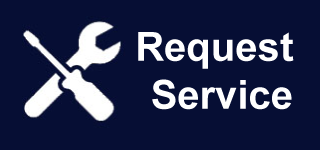In the event that you get Social protection advantages (SS), or Social protection impairment insurance coverage benefits (SSDI), you can’t manage to pay your entire bills, and you’re considering bankruptcy, you should be alert to just how these advantages are addressed in bankruptcy. But whether it is in your best interest before we discuss how these benefits are treated you should consider whether bankruptcy is even necessary in your situation, or. Before you see whether bankruptcy is suitable for  you, it’s important which you comprehend the various bankruptcy options.
you, it’s important which you comprehend the various bankruptcy options.
There are 2 bankruptcies that are common customers, Chapter 7 and Chapter 13. A Chapter 7 bankruptcy is actually named a “Fresh Start” bankruptcy given that it discharges (wipes out) many forms of personal debt within about 3 months of filing bankruptcy (there are lots of exceptions to discharge, including many fees, alimony/maintenance, youngster support, student education loans, and many federal government debts and fines). A lot of people whose only income source is SS and SSDI benefits, effortlessly be eligible for a a Chapter 7 bankruptcy. Happily, this might be usually the cheapest, fastest, simplest for the two bankruptcy choices.
A Chapter 13 bankruptcy is oftentimes described as a “Wage Earner” bankruptcy. A Chapter 13 is generally a far more complicated, longer, higher priced bankruptcy compared to a Chapter 7. in the event that you file a Chapter 13 bankruptcy you’ll be needed to register a “Plan” aided by the court, which proposes how you would pay off some, or all, of one’s financial obligation, and exactly how very long you will definitely simply take to pay for that financial obligation straight back. Federal law calls for that you’re in a Chapter 13 bankruptcy for at the least three years, and no more than 60 months. Due to this time requirement, if you should be eligible to discharge all of your debts, that won’t take place for 36 to 60 months. The program which you propose into the court must certanly be authorized because of the court, and something associated with the requirements essential to get approval of your Plan is you must-have sufficient earnings to pay for all your necessary month-to-month costs, along with your month-to-month Arrange payment. Many people who’re eligible for SS and SSDI advantages (and these advantages are their only earnings) receive a quantity this is certainly well below their month-to-month expenses, therefore qualifying for a Chapter 13 is usually extremely hard for somebody who only gets SS or SSDI benefits.
You receive SS or SSDI benefits, these benefits are exempt under bankruptcy law if you choose to file a Chapter 7 bankruptcy and. This means if you file bankruptcy that you will not lose these benefits. This can include swelling amount re payments, past payments, present re re payments, and future payments. Nonetheless, it’s important to keep in mind that this earnings is protected towards the level you have on hand, or in an account, came solely from SS or SSDI benefits that you can prove the money. Once again, you receive from any other source, you jeopardize the protection bankruptcy provides your SS or SSDI benefits (this does not include any SS or SSDI benefits you will receive after your bankruptcy is filed – future SS and SSDI benefits are always protected from turnover in bankruptcy) if you comingle your SS or SSDI benefits with funds. To totally protect your SS or SSDI advantages from turnover in a bankruptcy, when I discussed earlier, we recommend that you continue an independent account just for your SS or SSDI advantages, and therefore there is a constant deposit every other variety of funds for the reason that account. Using this method you notably lower the danger which you will lose SS or SSDI advantages in a bankruptcy.
In summary extremely essentially, if:
- Your just income is SS or SSDI advantages; and
- You can’t manage to spend your entire bills; and
- You aren’t troubled by creditors calling you regarding your debts and/or suing you for people debts; and
- You aren’t worried about your credit history: then
STOP having to pay the debts that aren’t necessary to live (medical bills, charge cards, payday advances, signature loans, signature loans, repossessions, foreclosures, past leases, past utilities, many civil judgments), save your valuable cash, and don’t file bankruptcy.
- In the event that anxiety of commercial collection agency and possible legal actions bothers you; or
- You’re worried about your credit history; then
communicate with legal counsel about bankruptcy.
Please realize, the examples we have actually supplied in this essay aren’t exhaustive. Your position may vary from the examples supplied. All information included herein is intended for academic purposes just and may never be considered advice that is legal. All information supplied throughout this short article should be thought about information that is general and certain applications can vary. It will always be essential which you communicate with a qualified bankruptcy lawyer and discuss your unique situation to ascertain whether bankruptcy suits you, of course so, the way the information We have actually provided herein will influence you especially. Contact us, we’re here to aid.
None associated with the information supplied herein is supposed to convey or indicate a relationship that is attorney-client.








